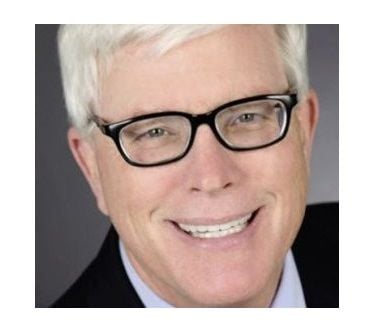
Last Monday "the lede" was a trade war with China. Then the Justice Department seized Trump attorney Michael Cohen's files, then Mark Zuckerberg came to town, then House Speaker Paul Ryan announced his retirement, then CIA Director Mike Pompeo had his (very successful) hearings to become secretary of state, then former FBI Director James Comey began his book PR blitz and the Justice Department's inspector general tore into former Comey deputy Andrew McCabe.
Deputy Attorney General Rod Rosenstein told key staffers he expected to be fired, and the buzz was that if the deputy AG went, then Attorney General Jeff Sessions might be going, too.
And then the United States, Britain and France called out Russia in the U.N. Security Council - and smashed three of Bashar Assad's WMD sites to smithereens with a display of military prowess and precision that reminded the world that America and its allies are not to be ignored when "red lines" are in play.
Jammed together into six days, it all makes the first few chapters of Genesis look like slow pacing.
The danger is what my friend Bill Bennett used to warn about: the problem of scale. Americans are losing the ability to be other than breathless and, along the way, the ability to distinguish between orders of magnitude.
Thus all stories get thrown in a hopper and some editor, producer or host has to try and make a show rundown or a front-page layout. It is easiest just to concentrate on the president and ignore everything else, or to jam him into every story, or to abandon scale and simply make every story feel big. The casualty of that is the ability to detect genuine significance.
Not this weekend. One very big thing stands out: The West still stands for something exceptional.
The United Nations' Security Council meetingFriday was extraordinary. On many levels, not the least of which were humor (Ambassador Nikki Haley telling her Russian counterpart that she was in awe of his ability to say what he said with a straight face) and absurdity (Bolivia's ambassador lecturing the French on their revolution of 1789 and the Brits on the Magna Carta). Most striking, though, was the tone of outrage from the Western ambassadors - an outrage long missing from Western rhetoric and finally delivered first with words and then with missiles and bombs. The United States has its scandals and its loud, confusing, divisive and great-for-ratings president, but far more important than he, or his successors, the United States has its principles. Central among them is commitment to the rule of law and to the restraining of tyrants and barbarians.
We cannot always accomplish the restraining successfully, but we can and often have, in the past two-plus decades - in Kosovo, Afghanistan, Iraq, Libya and now Syria - tried to encourage genuine progress, best understood as the ongoing, incremental expansion of liberty and literacy in a growing number of stable regimes in or aligned with the West. We have sometimes failed, but it is important that we tried and keep trying.
We tried again this weekend, and the president's choice, developed with a national security team second to none in two decades, chose a path between the twin dangers of too little and too much. The president thanked our allies and our military when the strikes were, at least for a time, over. We should thank him and his national security team of Vice President Mike Pence, Defense Secretary Jim Mattis, Chairman of the Joint Chiefs of Staff Gen. Joseph Dunford, CIA Director and Secretary of State-designate Pompeo and new national security adviser John Bolton, Director of National Intelligence Daniel Coats and Chief of Staff John Kelly as well as their teams of professionals. However they got there and whatever process they used, they got to the right place, along with our allies.
The West will not allow use of weapons of mass destruction to go unpunished. That was the lesson a year ago, the same lesson of 2003 and 2001, a lesson that was not absorbed last year and thus was repeated with twice the ferocity. We mean it. Really. Anywhere and always, at least as long as the West stays true to its principles.
That's the big story. That's the lede. Don't bury it.


 Contact The Editor
Contact The Editor
 Articles By This Author
Articles By This Author